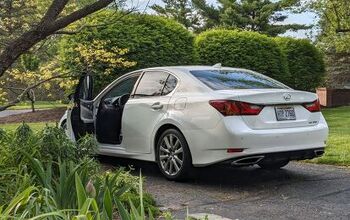US Lawsuits Could Cost Volkswagen $1.5B 'on the Low End'

Analysts are estimating that more than 400 lawsuits (for now) pending against Volkswagen for fraudulent “clean diesel” claims could cost the automaker billions in court — if they even go that far.
Bloomberg reported (via Automotive News) that as lawyers for owners and Volkswagen wrangle over where to eventually hold a consolidated trial against the automaker, many analysts believe Volkswagen — who has already admitted to committing fraud — may end up paying at least $1.5 billion to customers, before damages or a potential buy back. That figure could rise to $8.9 billion if Volkswagen has to buy back their cars, according to Bloomberg Intelligence analyst Brandon Barnes.
(Presumably, those billions would be spent outside of a single wrench being turned on one of its illegally polluting cars.)
Despite the looming litigation, it’s likely that Volkswagen will settle claims before any trial, experts say. The automaker has already admitted wrongdoing, well before many of the lawsuits against Volkswagen were filed.
“I’ve never been in any case where, before it ever gets filed, the defendant admits publicly that it engaged in a fraudulent activity,” Paul Hanly, a lawyer with experience in multi-district cases such as Volkswagen’s, told Bloomberg. “The only thing to prove is the extent of the fraud.”
Its unclear what the fix for U.S. cars could be, or how much it could cost in the States. Volkswagen’s fix for cars in Europe cost less than many expected, but Volkswagen said it wouldn’t revise its earlier plans to take a $7 billion charge to help pay for the fixes.
In the U.S., any potential civil penalty would be outside what federal regulators could hand down as punishment to Volkswagen. Although initial estimates pegged the federal penalty as high as $18 billion, it’s likely that Volkswagen won’t face such a steep penalty. ( It may be closer to $3 billion if you use the feds’ own worksheets.)
According to Bloomberg, Volkswagen has about $20 billion cash on hand, and the automaker announced it had secured $20 billion in bridge financing from banks to help cover the cost of the scandal, according to Reuters.
Volkswagen may need every penny of that in the U.S.

More by Aaron Cole
Latest Car Reviews
Read moreLatest Product Reviews
Read moreRecent Comments
- Jalop1991 This is easy. The CX-5 is gawdawful uncomfortable.
- Aaron This is literally my junkyard for my 2001 Chevy Tracker, 1998 Volvo S70, and 2002 Toyota Camry. Glad you could visit!
- Lou_BC Let me see. Humans are fallible. They can be very greedy. Politicians sell to the highest bidder. What could go wrong?
- SPPPP Vibrant color 9 times out of 10 for me. There may be a few shapes that look just right in metallic gray, for example. There are a few nices ones out there. And I like VW "White Silver". But I'd usually prefer a deep red or a vibrant metallic green. Or a bright blue.
- 28-Cars-Later Say it ain't so, so reboot #6* isn't going to change anything?[list=1][*]V4-6-8 and High "Tech" 4100.[/*][*]Front wheel drive sooooo modern.[/*][*]NOrthSTARt.[/*][*]Catera wooooo.[/*][*]ATS all the things.[/*][*]We're *are* your daddy's Tesla. [/*][/list=1]

































Comments
Join the conversation
I'll take a wild guess and say that the cost of a US recall + fines will run somewhere between $500 million - $1 billion (EPA will account for the recall costs when setting the fine), and civil litigation will add a similar amount to the tab (lots of plaintiffs, but relatively low damages per plaintiff -- the lawyers will be the winners here.) That would be painful but manageable. VW's larger problem is its US market share was already lousy to begin with, and this won't help.
In the end, it might have been cheaper for VW to tell all the owners of non-compliant cars, "Bring in your illegal car and we'll swap it for a comparable, brand new, legal one." Rather than sending the trade-ins to the crusher, VW could sell them in third world markets to replace even dirtier vehicles.